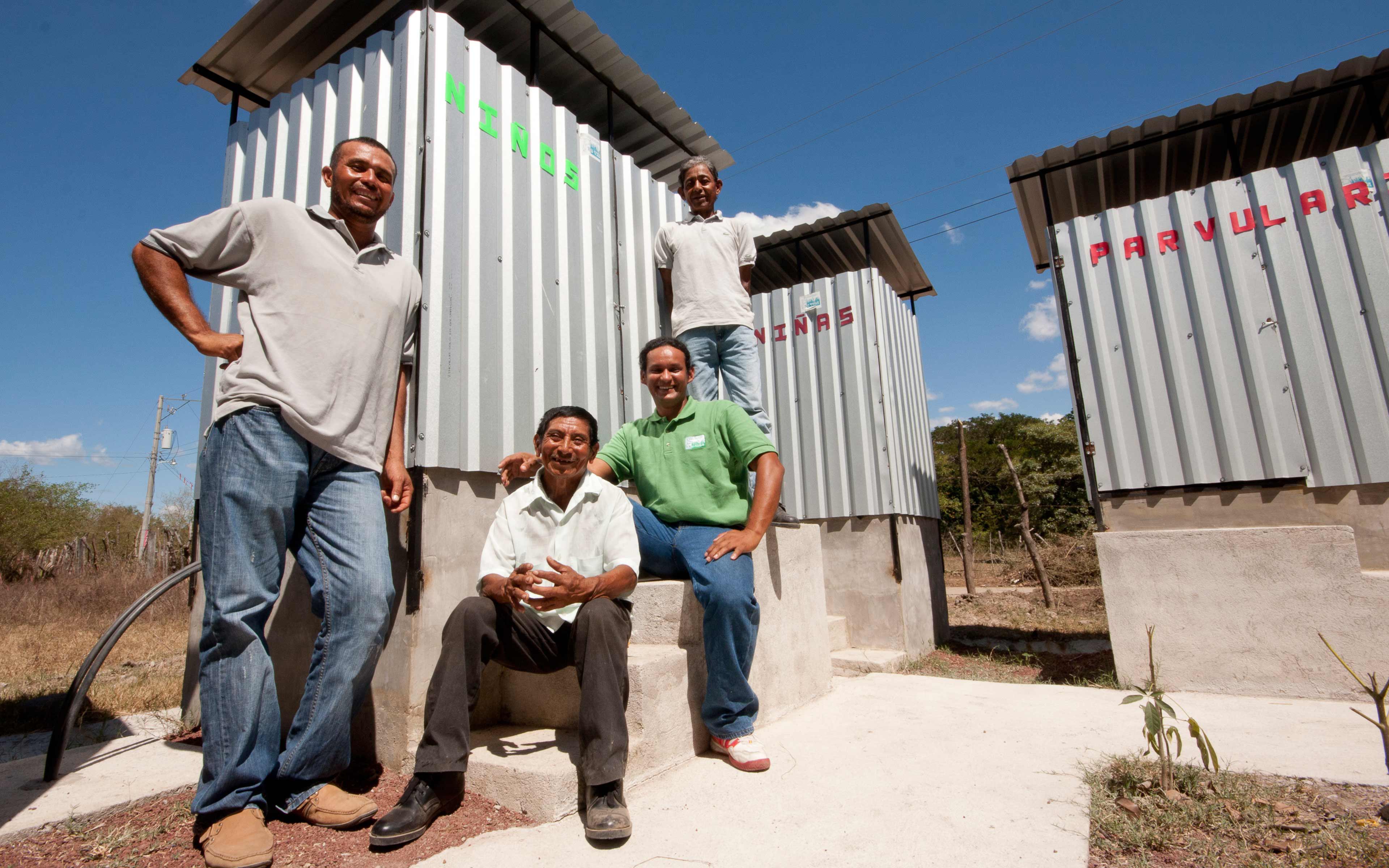Local committee members, for their part, have received training and equipment—including a loudspeaker—that have helped them launch evacuations, rescues, and cleanup, and they now lead disaster simulations to be sure townspeople are always ready for the worst.
Andres Gonzales is the president of the committee. “When the siren goes off, the river is about to flood,” he says. “We are already prepared. We just have to leave.”
“People feel safer now,” adds José Llovera Riojas, who manages the siren. “They feel calm because we are communicating with each other.”
The ideas behind Rivero’s initiative are simple. Simple enough to work. Building on her success, there are now more than 200 vulnerable communities in the Lambayeque region that have developed their own emergency committees.
Peru’s national system of civil defense has taken note and begun incorporating these grassroots humanitarians into their plans. “Five years ago, the government was skeptical about integrating local committees,” says Oxfam humanitarian coordinator Elizabeth Cano. “Now, they welcome and promote them.”
There is a tone and principle that infuse Rivero’s work and relationships: respect. In particular, respect for poor communities that the world is quick to overlook and underestimate. Rivero sees community members—however poor or vulnerable—as masters of their own fate, and as the key players when it comes to emergency response. Where the world sees hardscrabble farmers and traders who need our help, she sees brave survivors with deep knowledge of their environment and powerful connections to their communities—people, in other words, who have a lot to teach the rest of us.
“Rosa is very visionary, very hard-working,” says Cano. “But I think her greatest strength is that she listens carefully—not only to what people want and need but also to what they have to offer.”
Having their backs
Jaquité, Ramírez, and Rivero are local heroes, but they are not alone. Wherever Oxfam works, we have the pleasure and the honor of working side by side with people who are dedicated to their communities and willing to do whatever it takes to protect their lives and their rights. They are part of an international movement to localize aid—a movement fueled both by a growing understanding that local actors are making huge contributions, and by the reality that climate change and armed conflict are overwhelming the ability of international actors to respond to crises. In December of last year, the UN reported that more than 125 million people needed humanitarian assistance, yet this spring it faced a 45 percent shortfall in its emergency fundraising. Now, exciting new initiatives are emerging, like the Charter for Change, an agreement aimed at reshaping the partnerships between local organizations and their funders, and the Network for Empowered Aid Response, a platform for southern NGOs.
Oxfam itself has committed to boosting its direct funding of local partners from 24 percent to 30 percent by 2018, with the goal of putting more decision-making power into the hands of those with most at stake in emergencies. An even bigger undertaking is ahead of us: revisiting our partnerships around the world with an eye to strengthening local organizations and boosting their leadership. But at a recent celebration of International Women’s Day, Ramírez delivered high praise for our efforts so far: “In Spanish, when someone supports us we say they have their hands on our back. We really feel like Oxfam has had its hands on our back.”












